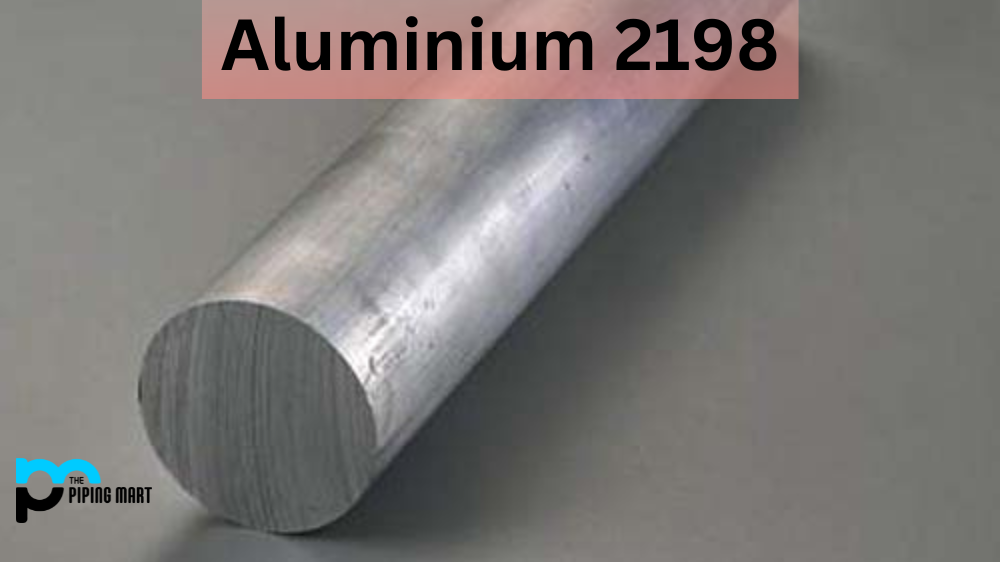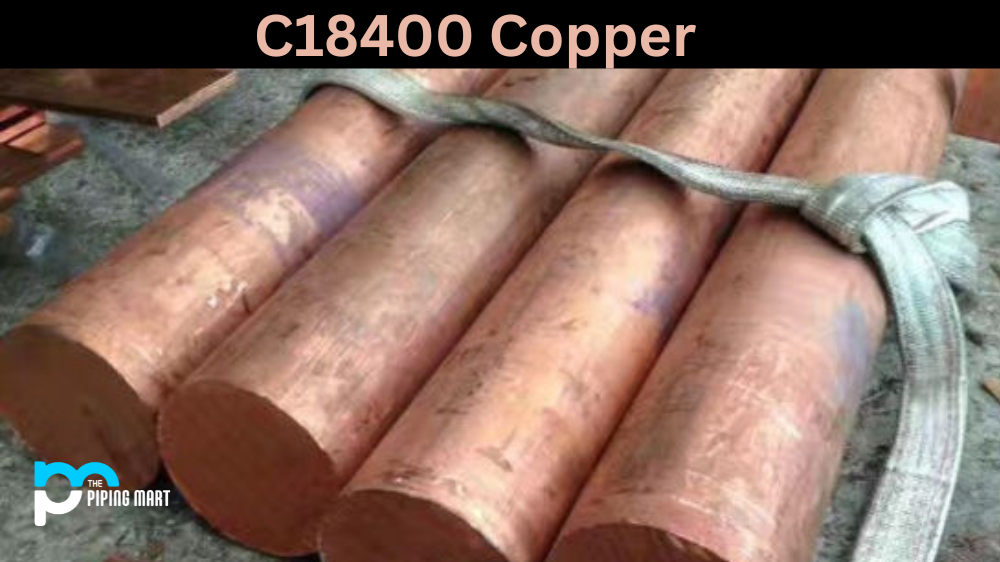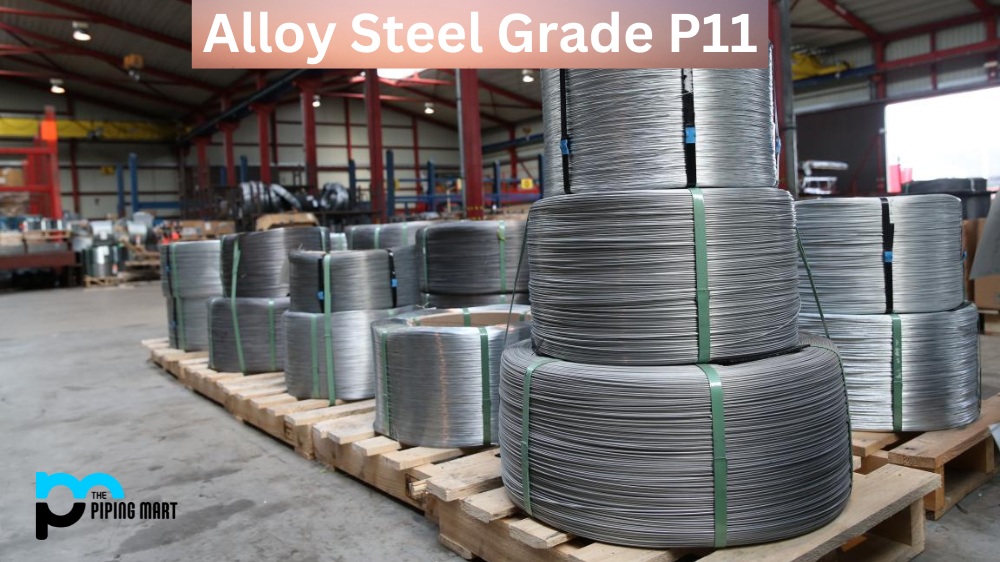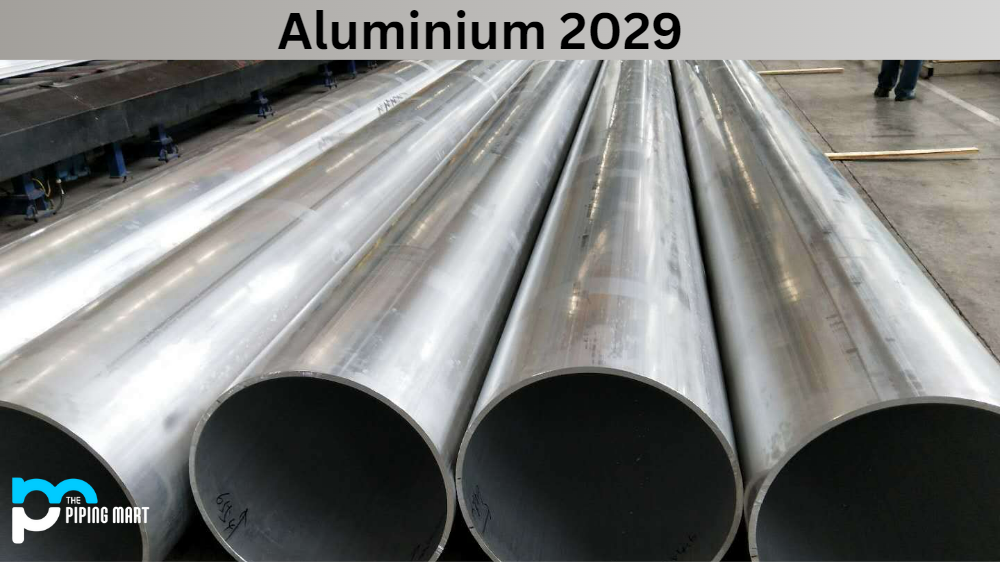Aluminium 2198 is an alloy made from aluminium, copper, manganese and silicon. This particular alloy has many uses due to its excellent mechanical and physical properties. In this blog post, we will deep dive into the composition, chemical properties, physical properties, corrosion resistance, heat resistance, heat treatment process, machining techniques and welding processes associated with Aluminium 2198.
Composition
AL 2198 consists of 97.0-99.0% aluminium, with the remaining 1-3% composed of 0.50-1.00% copper, 0.30-1.00% manganese, and 0.10-0.50% silicon, respectively. It also contains less than 0.05% iron or zinc and has a maximum sulphur content of 0.05%. This alloy is non-magnetic and possesses strong corrosion resistance against salts, acids and alkalis as well as atmospheric oxidation due to its high content of aluminium combined with other elements in the alloy, which provide additional protection from corrosion agents.
| Component Elements | Metric | English | Comments |
|---|---|---|---|
| Aluminum, Al | 92.59 – 95.91 % | 92.59 – 95.91 % | As Balance |
| Chromium, Cr | <= 0.05 % | <= 0.05 % | |
| Copper, Cu | 2.9 – 3.5 % | 2.9 – 3.5 % | |
| Iron, Fe | <= 0.10 % | <= 0.10 % | |
| Lithium, Li | 0.80 – 1.1 % | 0.80 – 1.1 % | |
| Magnesium, Mg | 0.25 – 0.80 % | 0.25 – 0.80 % | |
| Manganese, Mn | <= 0.50 % | <= 0.50 % | |
| Other, each | <= 0.05 % | <= 0.05 % | |
| Other, total | <= 0.15 % | <= 0.15 % | |
| Silicon, Si | <= 0.08 % | <= 0.08 % | |
| Silver, Ag | 0.10 – 0.50 % | 0.10 – 0.50 % | |
| Titanium, Ti | <= 0.10 % | <= 0.10 % | |
| Zinc, Zn | <= 0.35 % | <= 0.35 % | |
| Zirconium, Zr | 0.04 – 0.18 % | 0.04 – 0.18 % |
Physical Properties
Its composition determines the physical properties of Alloy 2198; for example, it has a density of 2.7 g/cm³ making it lightweight yet strong enough for use in various applications such as construction frames or aircraft components due to its high strength-to-weight ratio when compared to other metals such as steel or iron which have much higher densities at 7.8 g/cm³ and 8 g/cm³ respectively. Additionally, it has good electrical conductivity (54 W m⁻¹K⁻¹) along with thermal conductivity (140 W m⁻¹K⁻¹), making it suitable for use in electrical components which require efficient conduction or dissipation of heat generated during operation while maintaining structural integrity even at high temperatures up to 300°C (572°F).
Chemical Properties
Due to its chemical composition, Grade 2198 exhibits excellent corrosion resistance in most environments – even when exposed to salt water or extreme temperatures due to its high level of chromium content in comparison to other aluminium alloys like 5052 or 6061. It also has an exceptional strength-to-weight ratio due to its magnesium content which provides additional strength without adding any extra weight to the final product – making it ideal for use in aerospace applications where weight is a major factor in design considerations.
Mechanical Properties
Aluminium 2198 also has excellent mechanical properties such as good ductility and toughness – meaning that it can withstand significant force without becoming brittle or breaking down easily – making it perfect for use in applications such as automotive components where parts need to be able to withstand vibration or impacts without failing prematurely. The alloy also has a high level of thermal conductivity which allows heat generated by the part during operation to dissipate quickly – reducing the risk of overheating and resulting damage over time thanks to this property alone!
| Thickness mm (in) | DIR | 1.6 ≤ th ≤ 3.2 mm (0.063 – 0.125 in) | 3.2 ≤ th ≤ 6.3 mm (0.125 – 0.249 in) | |
|---|---|---|---|---|
| Tensile strength MPa (ksi) | LT | min | 462 (67) | 476 (69) |
| Yield strength MPa (ksi) | LT | min | 407 (59) | 427 (62) |
| E (tension) GPa (Msi) | L | Typical | 76.5 (11.1) | |
| Stress Corrosion Cracking MPa (ksi) ASTM G47 | LT | max | 350 (51) | |
| Density g/cm³ (lb/in³) | Typical | 2.7 (0.098) | ||
Uses
Aluminium 2198 is a relatively new alloy that has been gaining popularity due to its lightweight properties and strength. For those looking for a strong yet lightweight material, Aluminium 2198 is an excellent choice for various uses. It is often found in the aerospace industry for the making of aircraft components since it can handle high-stress levels and corrosion resistance. Additionally, this material is used in the manufacturing of recreational vessels such as boats, vehicles such as trailers, construction materials like window frames, and even many kitchenware items. With its versatility and durability, Aluminium 2198 offers an attractive option when considering building projects or shopping for quality products.
Heat resistance
Aluminium 2198 is a speciality alloy that offers superior heat resistance compared to other aluminium alloys. Its durability, strength and corrosion resistance make it ideal for high-temperature applications such as automotive, aerospace and industrial equipment manufacturing. This heat-resistant aluminium has been developed using advanced engineering techniques to provide optimal strength at elevated temperatures. As a result of its outstanding thermal capabilities, Aluminium 2198 can be used in any instance where robustness and temperature regulation must be maintained under extreme environmental conditions.
Heat treatment
Aluminium 2198 heat treatment hardens metal for critical applications such as aircraft fabrication. It involves subjecting the metal to a temperature range that draws out specific bits of alloying material from it and then cooling it rapidly. The result is a stronger version of aluminium that is more difficult to deform and less likely to corrode. Heat-treated Aluminium 2198 helps make stronger structural components with reduced weight, making it perfect for aerospace production where weight is a major factor. Heat treating can also make parts thinner, resulting in improved performance and optimal efficiency for aircraft designs.
Machining
Aluminium 2198 machining is a complex process used to shape aluminium into a desired product. With precision and accuracy being key, machining requires unique tools to create intricate parts from the metal alloy. It can be time-consuming, as multiple steps are needed to ensure the metal reaches its desired form. Depending on what’s required, the metal may need to be cut or drilled in specific shapes and sizes, with great attention given to each part of the process. Aluminium 2198 machining staff must be highly trained and experienced to note all variations that could occur during the project, ensuring that even the most minor details are accounted for. Companies must provide these professionals with modern equipment and high-grade materials so they can produce quality machined parts quickly while also meeting customer requirements.
Welding
Aluminium 2198 Welding is an invaluable skill to have. It requires a great degree of finesse and mastery of technique to produce perfect welds. This welding method has grown in popularity due to its use in the automotive and aerospace industries and many other industrial sectors. Aluminium 2198 Welding is a surefire way to create strong and durable components that last the test of time. Requiring specialized tools and years of practice, this delicate craftsmanship is something every aspiring welder should have in their arsenal.
Conclusion:
As you can see, Aluminium 2198 offers numerous advantages over other materials due to its unique combination of chemical, mechanical and physical properties that make it suitable for many different applications across a wide range of industries, such as aerospace engineering, automotive manufacturing, marine transportation, medical device production and more! If you’re looking for a reliable material that can provide superior performance while saving you money on production costs, then look no further than Aluminium 2198! With its excellent corrosion resistance, outstanding strength-to-weight ratio and impressive formability capabilities, there’s no better choice when selecting your next project material!

Abhishek is a seasoned blogger and industry expert, sharing his insights and knowledge on various topics. With his research, Abhishek offers valuable insights and tips for professionals and enthusiasts. Follow him for expert advice on the latest trends and developments in the metal industry.




